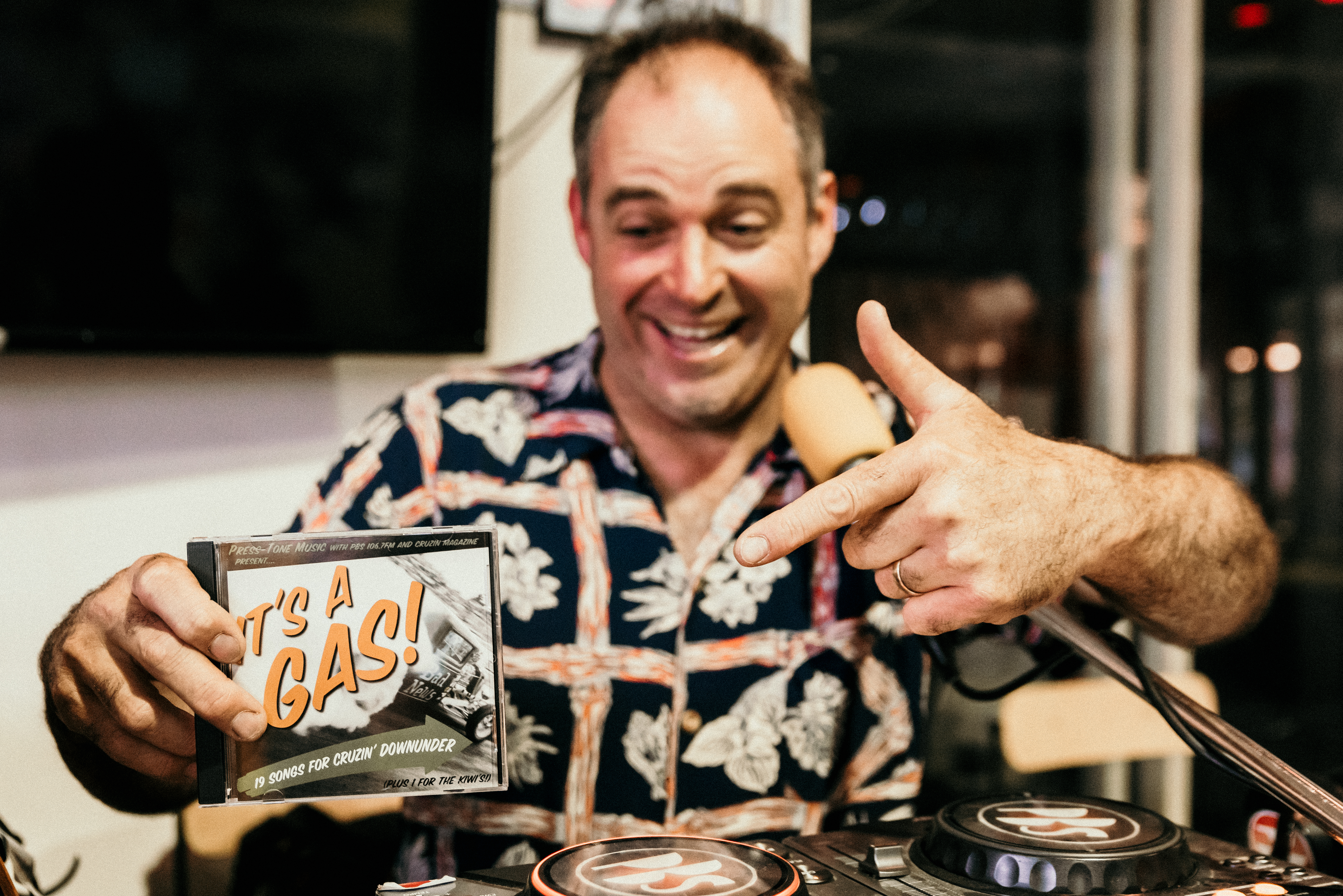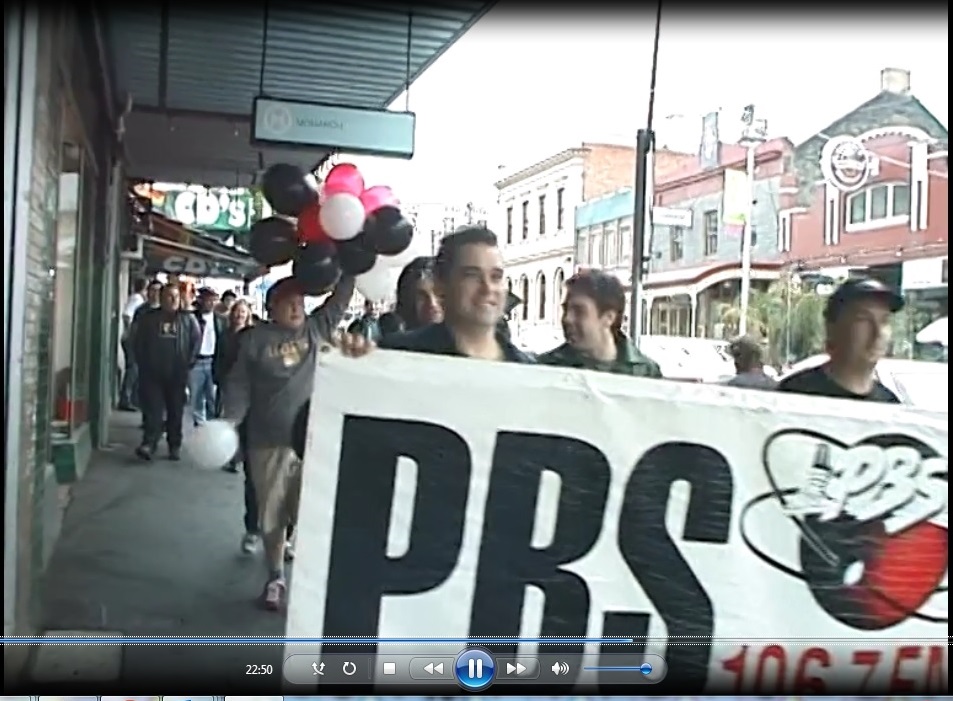Tue 25 Feb 2020 to Wed 11 Mar 2020
| Jamie Suppa seen holding one side of the banner, and leading team PBS from the tram stop, the day PBS moved from St Kilda to Collingwood in 2001 |
After more than 2 decades, Jamie Suppa AKA “Dingo”, host of Rockabilly program, "It’s A Gas" hung up the headphones on February 25. Behind the scenes, Dingo voiced carts, was on the program committee, helped build 47 Easey St studios, and more! He spoke to us about his time volunteering at PBS.
How did you get the name “Dingo”?
Back in 1998 I met a Swedish rockabilly band (Wildfire Willie & the Ramblers) at gig in Brussels. After they finished playing I went over for a chat and introduced myself. As I offered to shake the bass players hand Anders Backberg), he looked at me in his rather drunken state he randomly asked "do you mind if I call you Dingo?" I said "if you like". They invited me on their tour. For the next three weeks I traveled with them and 2 other bands all over Europe on the Rockabilly Heaven tour. Everywhere we went they introduced me as "Dingo" so the nickname stuck. I should write a book about that tour...
| Jamie Suppa pictured with Linda Gail Lewis and band in 2015 |
How did you get into Rockabilly?
My early introduction as a child was through my parents' music collection. They had the classic '50s rockers - Gene Vincent, Chuck Berry, Buddy Holly, Little Richard and Elvis. They used to go to the local Rock 'n' Roll dances. When I was 18 my mum and sisters started Rock 'n' Roll dance lessons. They were in need of some more male partners. They nagged me for a while and eventually I dragged a mate along to check it out. I loved it and soon started to go out to the dances and pubs. I met a lot of people and discovered a lot of great music.
How long have you been doing radio for?
I was involved with the ARRAS (Australian Rock 'n' Roll Appreciation Society) back in the early - mid '90s. They were doing a weekly radio show on 3CR. I started to do a local gig guide on the show and eventually worked up the courage to present my own show. Around that time I started listening to other community radio including PBS. While at 3CR I met Mr. Doo Wop (Peter Merrett). He mentioned that PBS was looking for a Rockabilly show and that I should apply. I started at PBS in 1999 with "It's A Gas".
| Dingo with The Thunderbirds drummer Harold Frith, and former PBS staffers Michael and Sam, also drummers |
What volunteer roles have you done at PBS?
I was the Roots category coordinator for several years and did some radio festival phone room gigs and building tasks. I was part of the team that built the current studios (walls/ceilings, etc.) at Easey St. My father and I also sourced some materials for Easey St. from building sites we were working on at the time. I have memories of when we were putting up the acoustic panels on the ceilings. There was a whole bunch of us as the panels were really heavy. Lots of the PBS community were dropping in to help and have a look. That was great to be part of.
What kept you at PBS?
PBS has great depth. The people you meet are music maniacs, but when you chat with them they have many other interests and experiences. The music brings us together. It has helped my music education, appreciation and tolerance. Not many people are into every style of music but if they are they most certainly will be found at PBS.
 |
| Dingo with volunteers Anton, Marisa, Bruce"Flattop", Lauren and Ken |
What did you get out of volunteering?
As a volunteer within PBS, I have a great respect for everything the station has done and continues to do for Melbourne's music landscape. It is part of the foundation but still able to apply a facelift when needed. This will keep PBS relevant and in tune. I'm excited about the future for PBS ahead of the move to CAP (AKA Collingwood Yards).
| The time that Twistin' Fever's Matt was acting cool when he met his Rockabilly radio hero Dingo |
And finally....
I would encourage people to get involved with PBS for your own (in)sanity. You will become (more) obsessed with music and the PBS culture. The PBS family needs volunteers to survive and prosper. Volunteers have built PBS into the station it is today with like minded music nutters from all genres. Highly recommended by (Dr.) Dingo!



